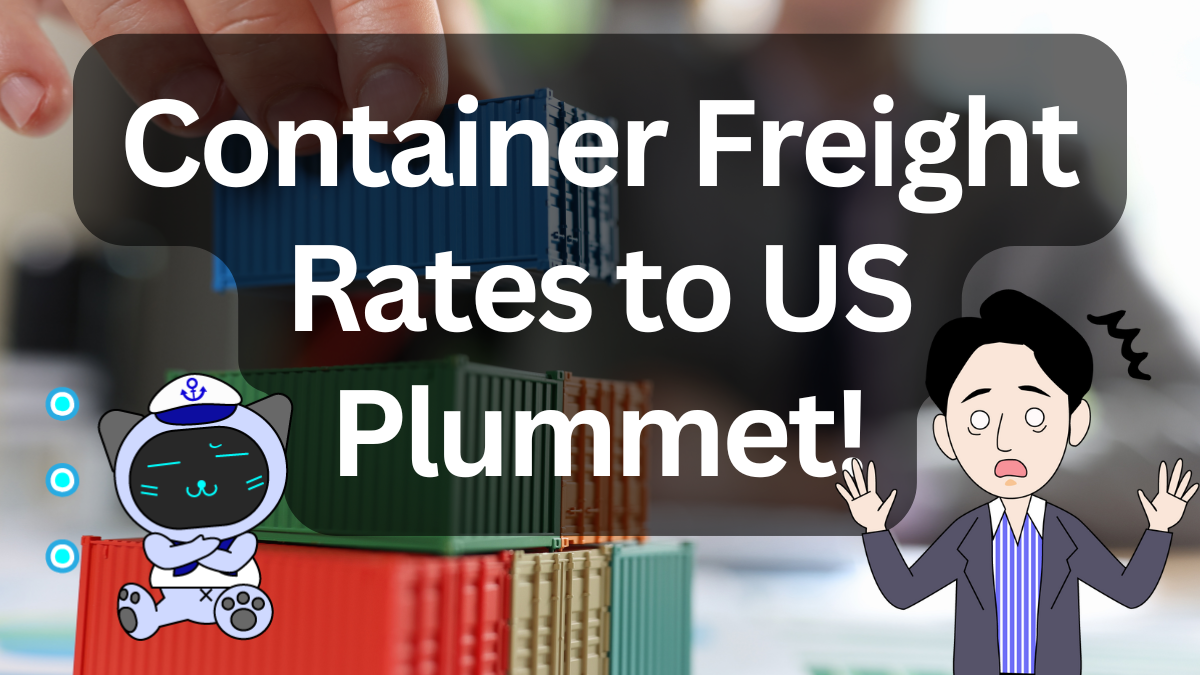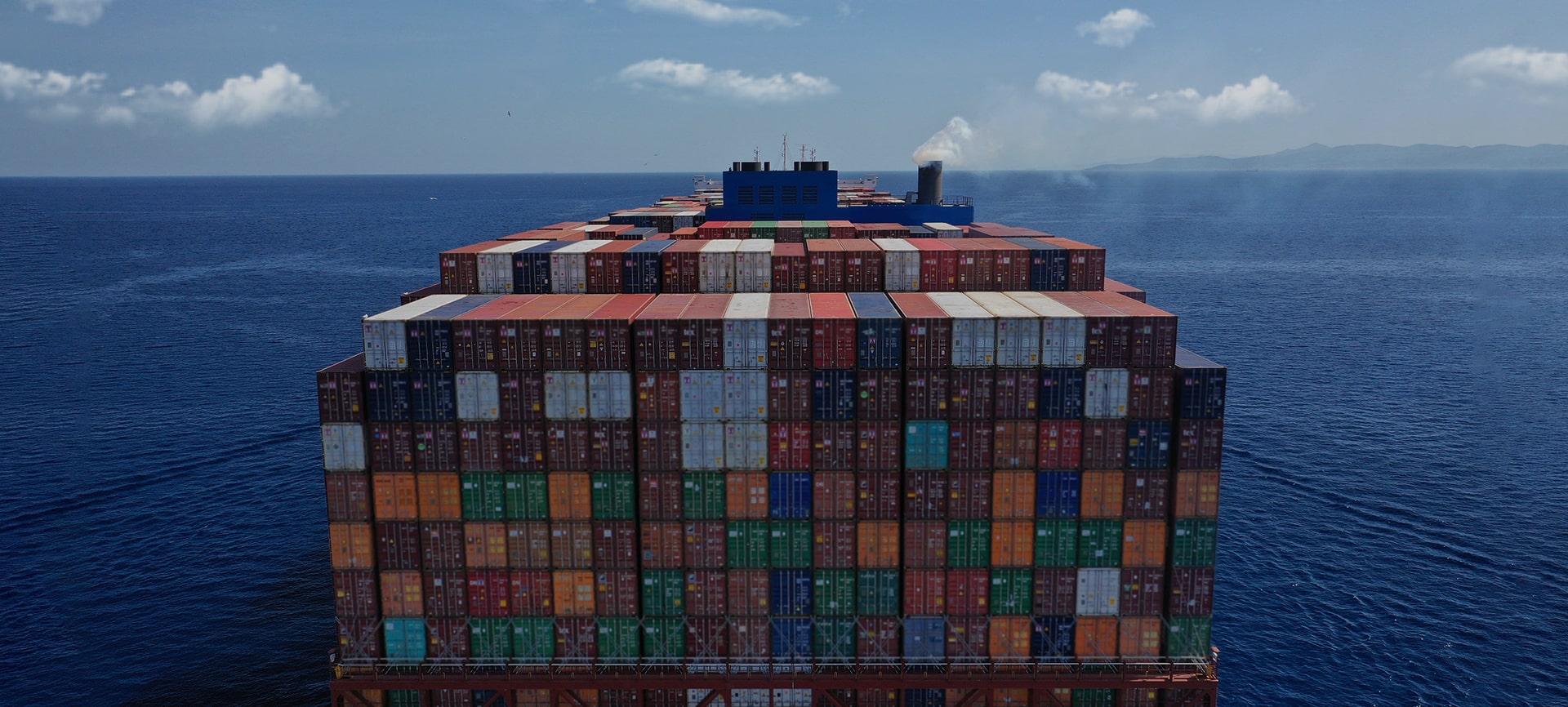Posted on: June 17, 2025 / Last updated: June 17, 2025
Sharp Drop in Container Freight from China to the U.S.: What’s Behind It?

In June 2025, container freight rates from China to the United States are plummeting. This is a significant shift for the logistics and maritime industries. In this article, we explain the background and outlook in detail.
CONTENTS
Shanghai–U.S. West Coast Rates Drop Over 26%
According to the June 13, 2025 data from the Shanghai Shipping Exchange (SCFI), freight rates from Shanghai to the U.S. West Coast fell by 26.5% from the previous week to $4,120/FEU. East Coast rates also declined 2.8% to $6,745/FEU, showing a broader downward trend.
Just one month ago, freight rates more than doubled due to a surge in demand following U.S.–China tariff easing. The current plunge marks an exceptionally sharp reversal.
Background: U.S.–China Relations and Rush Shipments
In mid-May, the announcement of partial tariff reductions between the U.S. and China prompted a wave of urgent procurement by American importers. As a result, short-term freight rates surged. According to SCFI, rates jumped to more than twice the level of mid-April, leading to market-wide supply shortages.
Freight Rates Rebound as Capacity Recovers
Following the surge, major shipping lines resumed previously suspended services, launched new routes, and added capacity. This caused a rapid recovery in vessel supply and shifted the supply–demand balance, triggering a sharp decline in rates.
Freight from Busan, South Korea to the U.S. West Coast also fell 9.2% week-on-week to $4,921/FEU.
Key Factor Going Forward: U.S.–China Tariff Negotiations
The most critical factor influencing future freight rates is the status of U.S.–China tariff measures.
- China to U.S.: Additional 55% tariffs (10% reciprocal + 20% fentanyl-related + 25% Trump-era)
- U.S. to China: Additional 10% tariffs
These tariffs had been temporarily suspended but are set to expire in July. Whether they are extended will significantly affect demand and freight pricing.
Other Routes: Marked Regional Differences
Rate trends vary significantly across other regions as well.
- Shanghai to Europe: $1,844/TEU (+10.6% WoW) — rising for four consecutive weeks
- To Mediterranean: $3,190/TEU (–3.4% WoW) — first drop in four weeks
- To Persian Gulf: $2,083/TEU (+8.0% WoW) — sixth week of increases
- To South America (East Coast): $4,727/TEU (+19.4% WoW) — about 3.4x since May
- To Oceania: $745/TEU (+8.6% WoW) — first positive change in nine weeks
The sharp surge to South America reflects severe supply constraints and highlights growing regional disparities.
Conclusion: Navigating a Rapidly Shifting Market
This freight rate collapse is not just a price fluctuation—it reflects a complex interplay of geopolitics, tariffs, and carrier strategies.
The maritime market is constantly in motion, and complete reversals can occur in just a few weeks. For logistics and trade professionals, tracking these developments closely is key to timely bookings and effective client proposals.







![[Logistics Finance Revolution] Mitsui & Co. Opens Digital Securities for Aircraft and Ships, Redefining Supply Chain Investment | IINO san's Logistics News](/wp-content/uploads/2026/01/20260113en-640x360.png)




